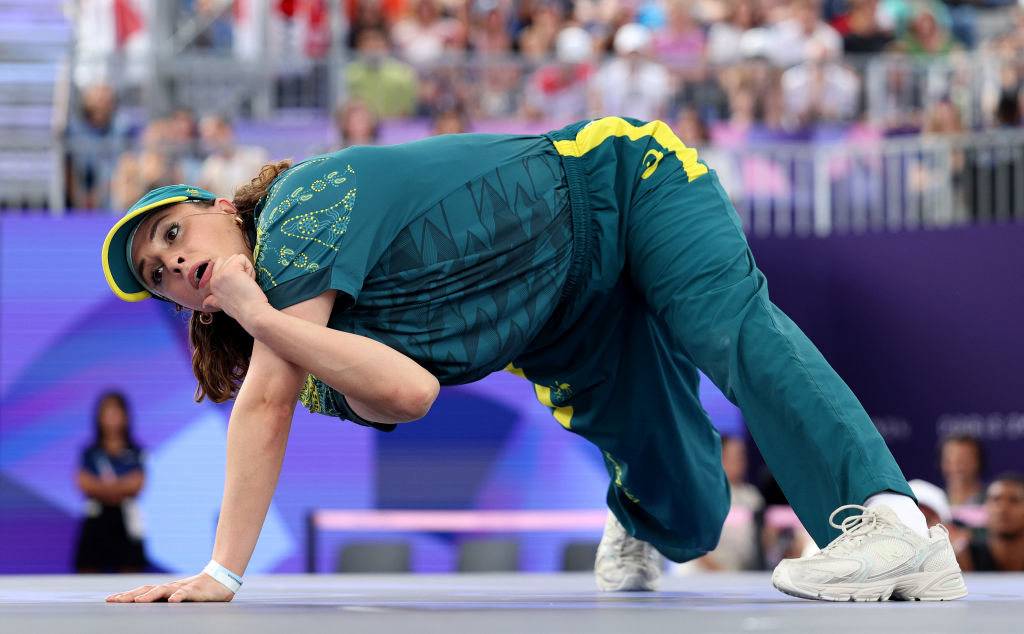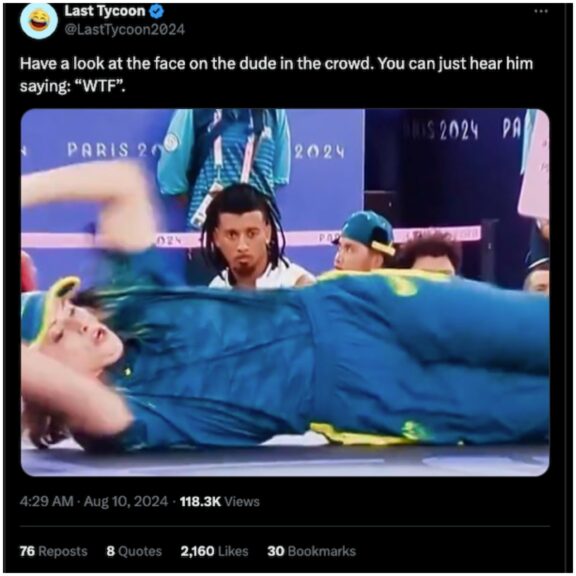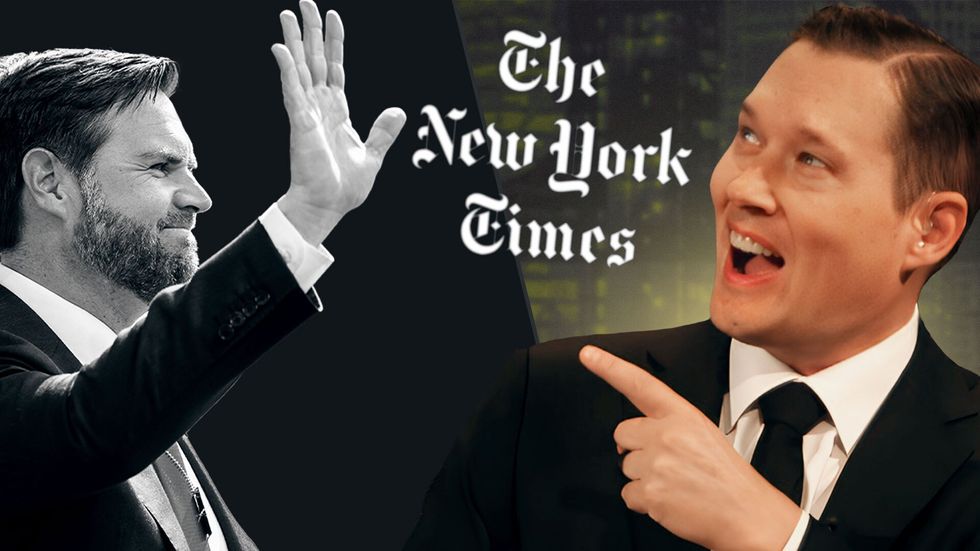The Most Awkward And Unintentionally Hilarious Moment In The History Of The Olympics
The point of the Olympics, going back to ancient times, was to celebrate greatness. There were always cheaters — the winner of the marathon in the 1904 Olympics was disqualified for getting in a car during the event — but they were generally dealt with pretty quickly. Fraud wasn’t rewarded. Or at least, it wasn’t ...

The point of the Olympics, going back to ancient times, was to celebrate greatness. There were always cheaters — the winner of the marathon in the 1904 Olympics was disqualified for getting in a car during the event — but they were generally dealt with pretty quickly. Fraud wasn’t rewarded. Or at least, it wasn’t rewarded openly and deliberately by the people running the show. By the way, but the guy who eventually won the marathon at the 1904 Olympics — after the guy who took a car was disqualified — almost died at the finish line because his trainers had given him a treatment that included brandy, raw eggs, and a poison used in pesticides. It was a different time.
These days, the Olympics aren’t any less bizarre. But they are cringier. Between the degeneracy at the opening ceremony of this year’s Olympics, the convicted child rapist playing volleyball, and the two men violently beating women in boxing competitions, these Olympics were fairly disastrous. Indeed, it’s safe to say that greatness is no longer the point of the Olympics. After all, a culture that rewards mediocrity cannot tolerate a celebration of excellence. So instead, you were instructed again and again to watch losers and pretend they’re successful. Humiliation is now the point.
There was maybe no clearer illustration of this phenomenon at the Paris Olympics than the sad spectacle of 36-year-old Australian breakdancer Rachael Gunn, who uses the stage name “Raygun.” She’s allegedly an award-winning athlete, having been named the “Sports Star Of The Year” at something called the “Pedestrian Television Awards.” As it turns out, “pedestrian” would be a generous way of describing Raygun’s performance. Raygun is also a university lecturer who holds a PhD in Cultural Studies from a university in Sydney, which she earned after writing a dissertation entitled, “Deterritorializing Gender in Sydney’s Breakdancing Scene: A B-girl’s Experience of B-boying.” More on that later. It’s every bit as mind-numbing as you’d expect.
Because breakdancing for some reason is an official Olympic event (for now at least), Gunn saw an opportunity to put all of her academic work into practice. She somehow performed well enough at the Oceania breakdance qualifying tournament in order to compete in Paris. So she scored zero points for her routine because, despite making it to the Olympics as a breakdancer, she doesn’t know how to breakdance.
Here’s one of the clips I can show you because the IOC hasn’t had it taken down yet on copyright grounds:
Someone said her routine looks like something a five year old might do right after yelling “Hey dad watch this.” That sums it up pretty well.
At certain points her dance moves remind me of a person becoming possessed in a horror film, but that makes it sound more impressive than it is. It might be more accurate to say that she looks like a disabled kangaroo having an epileptic seizure. I can say, at least, that I have done a few of her moves myself in the middle of the night when I wake up with a charley horse in my leg.
If you zoom in, there’s a moment during that routine where someone in the audience appears to have the same thought:
That’s the expression of a man thinking, “what in God’s name am I watching?” It’s a complete joke, and everyone watching understood that immediately.
The fact that this woman “qualified” in any way to compete in the Olympics is the clearest possible evidence that breakdancing should not be an Olympic event. And indeed, it looks like it may not be around much longer, it’s not on the schedule as an official event at the 2028 Los Angeles games. So Rachel Gunn may have actually done the world a favor by bombing so badly that it ended this trend before it really began.
WATCH: The Matt Walsh Show
In summary, Raygun has no actual skills. And she appears to have realized that fact very early on in her professional life, which is why she’s built her entire career on the idea that anyone should be able to do whatever they want — even if they’re not any good at it. There’s no secret about this. She comes out and says it. And a university gave her a PhD for saying it, even though her dissertation has all of the readability and coherence of Scrabble tiles dumped randomly on the floor. To give you an idea, Raygun’s dissertation begins by stating:
I recognise my own position as a member of the LGBTQI community (though one receiving privileges from being in a heteronormative relationship).
So she’s LGBT, which makes her oppressed. But she’s in a “heteronormative relationship,” so she has some privilege by osmosis I guess. How can you be both LGBT and in a heteronormative relationship? I don’t know. How can you be an Olympic athlete while having the coordination of a newborn fawn, just taking its first steps? The world is full of mysteries.
In any event, she never defines what that privilege is or why it’s relevant to any actual academic topic, but she declares that she has it, right out of the gate.
Then Raygun gets into the really substantive stuff. This is where she wants you to re-conceptualize what it means to be “good” at breakdancing:
Rather than viewing female breakdancers as ‘lacking’ the skills and techniques required to participate, we can, instead, propose that how breakdancing operates – the way it is structured and defined – is in opposition to the feminine.
In other words, who cares if a woman can’t breakdance? That shouldn’t prevent them from breakdancing. All they have to do is join breakdancing competitions, and everyone else has to pretend they’re doing a good job. Problem solved.
It’s a 300-page dissertation, and it’s almost completely unreadable, but that’s the overriding message. Women can do whatever they want — it’s only misogynists who would dare to say otherwise. Again from the dissertation:
Social expectations disguised as biological assumptions have a material effect on corporeal possibility and expression.
What she’s trying to say here is that society restricts what women are able to do. It’s not really true, of course. And the idea that women are somehow excluded from the world of dance is just about as nonsensical a claim as you can make. You may as well argue that Asians are being unfairly excluded from martial arts. But the more pressing point here is that this is what passes for scholarship these days. Academia is now full of unimpressive dimwits who disguise the most banal observations and shallow, off-base analysis with big words and lots of unnecessary syllables. This is the mark of a dumb person. Smart people can make complicated ideas sound simple. Dumb people make simple ideas sound complicated. And that is all that academia does anymore. It is nothing more than the effort to make simple (and often quite wrong) ideas sound way more complicated than they are.
Her whole dissertation is like this. As she states:
I do not want to set out a utopian vision for the future of gender politics in breaking. As tempting as this may be, such a call to arms would place limitations on the prospects enabled through deterritorializations.
It’s good that she adds this caution. If she hadn’t, I would have thought that her dissertation about the politics of breakdancing is a guide to establishing a universal utopia on Earth. But she’s a very humble person, so she warns us that she cannot guide us to a utopia. She can only bring us most of the way to the promised land. She is like the Moses of white female street dancers.
But what about this “deterritorialization” concept? What does that word mean? Well, it doesn’t mean anything. It’s not a real word. It’s more academic jargon invented by 110 IQs who want to sound like 150 IQs, even though nobody with a 150 IQ would ever be caught dead using a word like “deterritorialization.” As for what it’s supposed to mean, as best I can tell, it means that something is being spread. If it’s deterritorialized, it is spread beyond its traditional or original territory. Something like that. What does that have to do with breakdancing? Who knows.
The greater question is this, however: Why is a university paying someone to write a dissertation on this topic and then teach about it full-time? We could potentially use a dissertation that answers that question. That’s because, as amusing as it may be to look at this woman spaz out in front of an international audience and call it athleticism, there are serious implications here. She’s not the only person who thinks like this. Pretty much everyone in power now thinks like this.
Again, a university in Australia gave her a PhD for writing about how she’s sad because more women aren’t breakdancers. Then she won a qualifier and appeared in the Olympics despite having no talent whatsoever. And even after Raygun publicly humiliated both herself and her country, Australia’s officials are still standing by her. Here’s Australia’s top Olympics boss, Anna Meares, talking about Rachel Gunn’s feelings — and how everyone who doesn’t support her probably hates women. Watch:
My case for invading and conquering Australia gets stronger every day.
But in between all the sobbing and deflection and the accusations of misogyny, there was an interesting claim in there, which is that Rachel Gunn is supposedly the best female breakdancer in all of Australia. There isn’t a single woman in the entire country of 26 million people that could do any better. If that’s the case, it’s surprising. Her dance routine looks like the contortions a person might do if a spider ran up their shirt. There are a lot of spiders in Australia, so you’d think many people would be capable of at least matching her performance.
Now, this obviously isn’t the most important news story happening in the world right now. But it’s worth discussing for a few reasons. First of all, it’s hilarious. That’s the main reason. But it also tells us something about our culture and especially about the university system. Thanks to universities, whose mission is supposedly to educate future generations, a profoundly narcissistic and untalented woman is being paid to write about breakdancing — an unserious topic that, in any event, she clearly does not understand or even respect. And then, because she’s a woman, her country elevated her far beyond her competence, all the while attacking anyone who pointed out how absurd the whole situation is.
Yes, it’s quite possible that “Raygun” would justify her performance by saying that it is “interpretive” and is supposed to convey some kind of meaningful message. And to be fair, her performance does have a meaningful message. It’s just not the one she intended to send. It shows us, in humorous though excruciating detail, just what happens when someone is able to coast by on victim points and intersectionality arithmetic, eventually making it to a position that they are not remotely qualified for.
It’s just very fortunate for the rest of us that Raygun decided she wanted to be a breakdancer and not, say, an airline pilot. Imagine her interpretive piloting techniques at 30 thousand feet.
So if the Olympics are good for anything anymore, it’s putting images like that in the minds of millions of people. It’s exposing the absurdity of identity politics and the gender cult by taking their beliefs to their logical conclusion. That may not make for a good sporting competition. But with less than 90 days to go until a DEI candidate is on the ballot for the presidency of the United States, it’s hard to think of a more important or more timely message.
Originally Published at Daily Wire, World Net Daily, or The Blaze
What's Your Reaction?

































































































